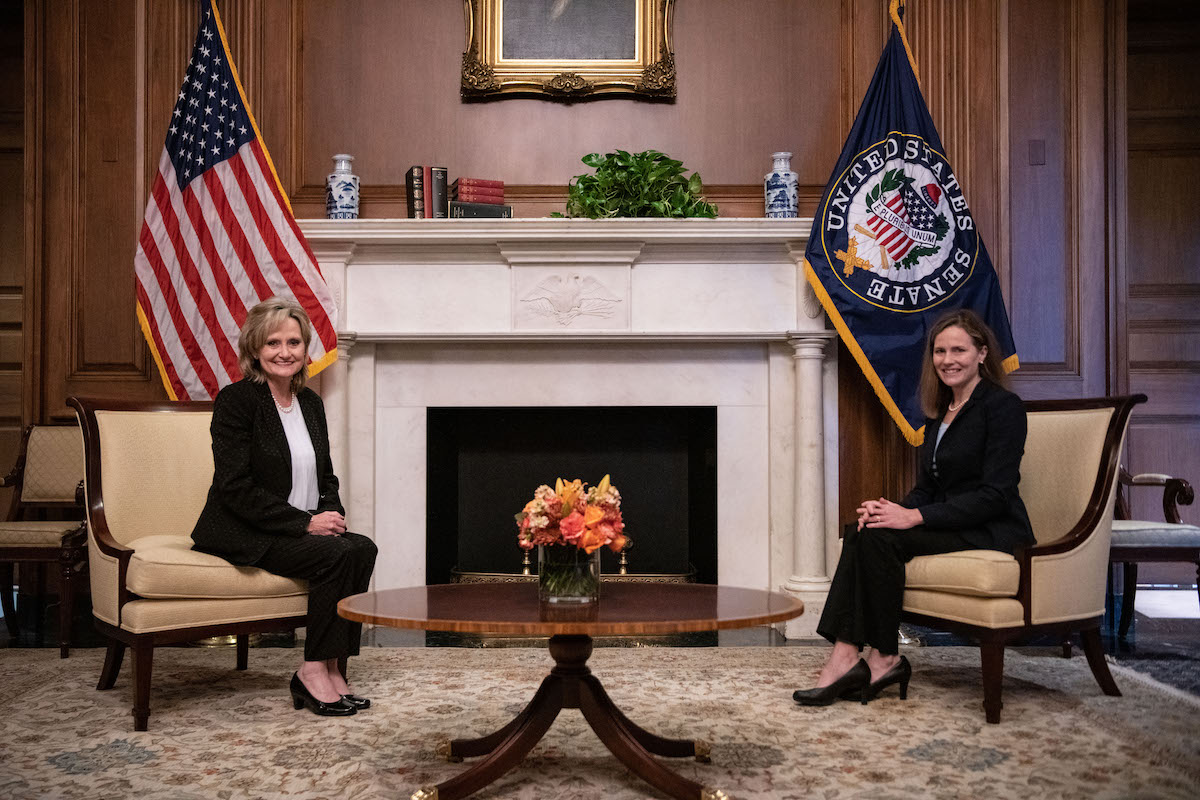The church in Mississippi had failed in its mission at the ballot box, leaders of Bound4Life, a Kansas City, Mo.-based anti-abortion organization, declared late one November evening nine years ago. Earlier that day, a 58% majority of Mississippians had voted down the Personhood Amendment, which would have defined “person” to mean “every human being from the moment of fertilization, cloning, or the equivalent thereof.”
The Personhood effort, which many believed to be a shoe-in here, went far beyond ending abortion for any reason, endangering in vitro fertilization and branding the birth-control pill an “abortificient.”
“The kingdom of Satan is united, which is why, for this season, it’s successful,” Susan Tyrrell, a blogger for the organization, wrote in a Nov. 8, 2011, blog post. “Eventually, the church will be united. … We are advancing, but tonight, once again, we have let the kingdom of darkness advance ahead of us.”
Nine years since the Mississippi gut-punch to the Personhood effort, though, the possibility that President Donald Trump could replace the court’s late liberal stalwart, Ruth Bader Ginsburg, with a conservative jurist has given Bound4Life, its leaders and other anti-abortion groups renewed hope.
Barrett: Republicans ‘Invested’ in ‘Judges Who Will Overturn Roe’
Many opponents and supporters of Trump’s decision to nominate Amy Coney Barrett, a conservative Catholic, to the Supreme Court believe she would vote to overturn Roe v. Wade, the landmark 1973 case that affirmed abortion as a woman’s right.
Earlier this month, on Oct. 9, CNN reported that Barrett failed to disclose two speeches she gave on the topic as a faculty administrator at Notre Dame University in 2013. The CNN story noted that the university had removed videos of the speeches from YouTube in 2014.
The Mississippi Free Press searched Notre Dame student publications, though, which included three articles from the time that quoted from Barrett’s speeches.
“Republicans are heavily invested in getting judges who will overturn Roe,” The Observer, Notre Dame’s student newspaper, reported Barrett saying in a Jan. 18, 2013 speech. “And Democrats are heavily invested in getting judges who will preserve the central holding of Roe. As a result, there have been divisive confirmation battles of a sort not seen before.”
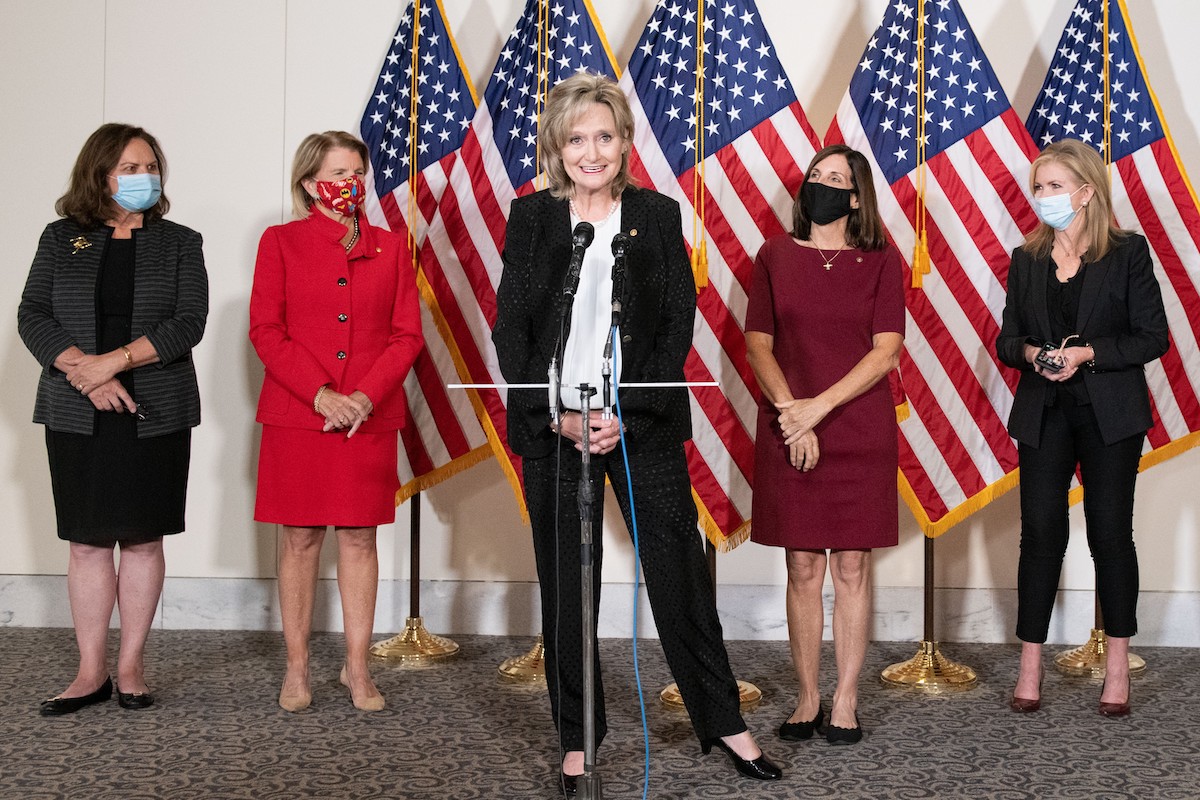
Mississippi’s Republican junior U.S. senator, Cindy Hyde-Smith, began running a campaign ad earlier this month touting her belief that a vote to confirm Barrett to the Supreme Court will result in anti-abortion outcomes.
“As a conservative woman in the United States Senate, I know what it’s like to come under fire from the liberals,” Hyde-Smith says in the ad, looking into the camera. “It just comes with the territory. I’ve never been afraid to stand up for our faith, the rights of the unborn, and our Second Amendment gun rights. That’s why I’m supporting President Trump’s nominee for the Supreme Court, Amy Coney Barrett. She’s a woman of strong faith with a record of protecting freedom and liberty and she’s exactly who we need on our Supreme Court.”
Hyde-Smith’s opponent, Democrat Mike Espy, has urged the Senate to wait until after the election and inauguration to confirmed a new justice.
‘I Believe God Can Shift This Supreme Court’
The Supreme Court has long been a prime target of the evangelical right, including Bound4Life co-founder Lou Engle. The preacher founded the nonprofit group with fellow anti-abortion activist Brian Kim in 2004 when the men traveled with a group of young evangelicals to Washington D.C., to silently pray on the steps of the U.S. Supreme Court for the end of abortion with red duct-tape over their mouths and the word “LIFE” written on them.
Bound4Life’s silent duct-tape protests have since spread nationwide, led by students at schools and youth groups outside abortion clinics, including the Jackson Women’s Health Organization, Mississippi’s only abortion clinic, which is in Jackson.
Engle has repeatedly popped up in policy debates over the years in the United States and elsewhere. In 2009, he joined U.S. House Rep. Michele Bachmann and other Republican leaders at an event in Washington where they prayed together to stop then-President Obama’s health-care reform legislation.
Last month, before Justice Ginsburg’s death, Engle appeared on evangelical YouTube show Your Encounter Today, where he explained he had decided to begin fasting after having a dream about having “an intimate conversation with President Donald Trump” in which the preacher “could feel (Trump’s) loneliness” and “the pressure of the attack against his life.”
“Suddenly, I lift my voice up with deep emotion toward (Trump) and deep love, and I said, ‘I’m going to be praying for you and America,’” Engle said told Your Encounter Today host Alan DiDio on Sept. 4, recounting the dream. “I woke up and I knew that was the call—we’re calling it the ‘Hinge of History Fast’—daring to believe that the principalities and powers of death and racism and anger and riots can be broken in the heavens with massive fasting and prayer.”
The minister, thin and rocking back-and-forth erratically in his office chair, told host DiDio that Trump was “the most pro-life president in the history of America” and compared the group’s imperative to end abortion to President Abraham Lincoln’s warning that, unless America ended slavery, God would continue the Civil War “until every drop of blood drawn with the lash shall be paid by another drawn with the sword.”
“We’re at a moment that, if things don’t shift, we could be heading toward a civil war,” Engle warned. “But I believe God can shift this Supreme Court in these days.”
Two weeks later, the U.S. Supreme Court announced that 87-year-old Justice Ruth Bader Ginsburg had died. Within an hour, Republican U.S. Senate Majority Leader Mitch McConnell announced plans to replace her—a reversal of his insistence in 2016 that it would have been wrong to let then-President Barack Obama select a new Supreme Court justice in an election year.
Trump announced the Barrett pick on Sept. 26—before Ginsburg’s burial.
Barrett Endorsed ‘Personhood Amendment’-Like Views
During Barrett’s confirmation hearings earlier this month, she evaded questions about abortion. Trump first appointed her to a federal appeals court in 2017. Before that, she was a professor of law at Notre Dame University.
In January 2013, Notre Dame Magazine, like the campus’ Observer newspaper, reported on the speech Barrett gave at the on-campus abortion event, “Roe at 40: The Supreme Court, Abortion and the Culture War That Followed.” The Notre Dame Right to Life Club, a group of student activists that protests outside abortion clinics, hosted the 2013 forum.
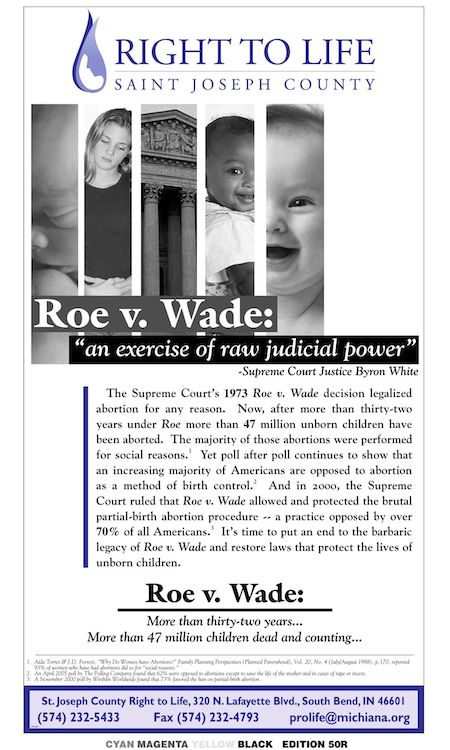
Barrett “spoke both to her own conviction that life begins at conception and to the ‘high price of pregnancy’ and ‘burdens of parenthood’ that especially confront women,” the magazine reported.
At the event, Barrett said she thought it was “very unlikely” that the Supreme Court would “overturn Roe v. Wade,” The Observer wrote. Back then, the future jurist said she thought “supporting poor, single mothers would be the best way to reduce the number of abortions in the U.S.”
At that time, though, there was a 5-to-4 pro-Roe majority on the Supreme Court and Barack Obama, a pro-abortion-rights Democrat, was president. Since then the court has changed dramatically. Trump replaced Justice Anthony Kennedy, who was the deciding vote to uphold Roe v. Wade in a 1992 case, with Brett Kavanaugh in 2018.
If Barrett replaces Ginsburg, who has voted to uphold abortion rights in numerous cases since President Bill Clinton first appointed her, that could prove decisive, both supporters and opponents believe.
The 2011 ballot initiative in Mississippi was so broad that a number of supporters and opponents of abortion rights agreed that it could have led to bans on abortion in all cases, including rape, incest and cases in which continuing a pregnancy endangered a woman’s life. They also worried that it would lead to bans on in-vitro fertilization and some forms of birth control including the pill.
During her confirmation hearings this month, Barrett refused to say whether she believed the 1965 Supreme Court case Griswold v. Connecticut, which struck down state laws banning contraception, was rightly decided. She did say she did not believe legal contraception was “in danger of going anywhere” because it is “unthinkable any legislature would pass such a law.” Barrett also refused to say whether she believed Roe v. Wade was rightly decided, either.
But on Oct. 1, The Guardian reported that Barrett and her husband, Jesse Barrett, once signed their names to an ad in the South Bend Tribune with the St. Joseph County Right to Life organization—a group that opposes not only abortion, but also in-vitro fertilization.
“We, the following citizens of Michiana, opposed abortion on demand and defend the right to life from fertilization to natural death. Please continue to pray to end abortion,” reads the 2006 ad, evoking language similar to that used in Mississippi’s 2011 Personhood initiative.
‘Where Does This Leave the State?’
Barrett was a member of Notre Dame’s faculty at the time she signed the ad with the St. Joseph County Right to Life Group. In January 2013, The Irish Rover, another campus publication, reported that Barrett said during her speech that month that “whether or not Roe gets overturned is irrelevant,” because the issue would then return to the states.
“If the Court doesn’t (overturn Roe), where does this leave the state?”the Irish Rover reported Barrett saying, citing state-level abortion restrictions like ultrasound requirements, waiting periods and parental consent laws.
Returning the issue of abortion to the states, though, would likely result in near-total bans on abortion in dozens of states, including Mississippi. Since Republicans took control the Mississippi House in 2012, the Legislature has passed multiple anti-abortion bills that would implement many of the policies voters rejected during the 2011 Personhood referendum.
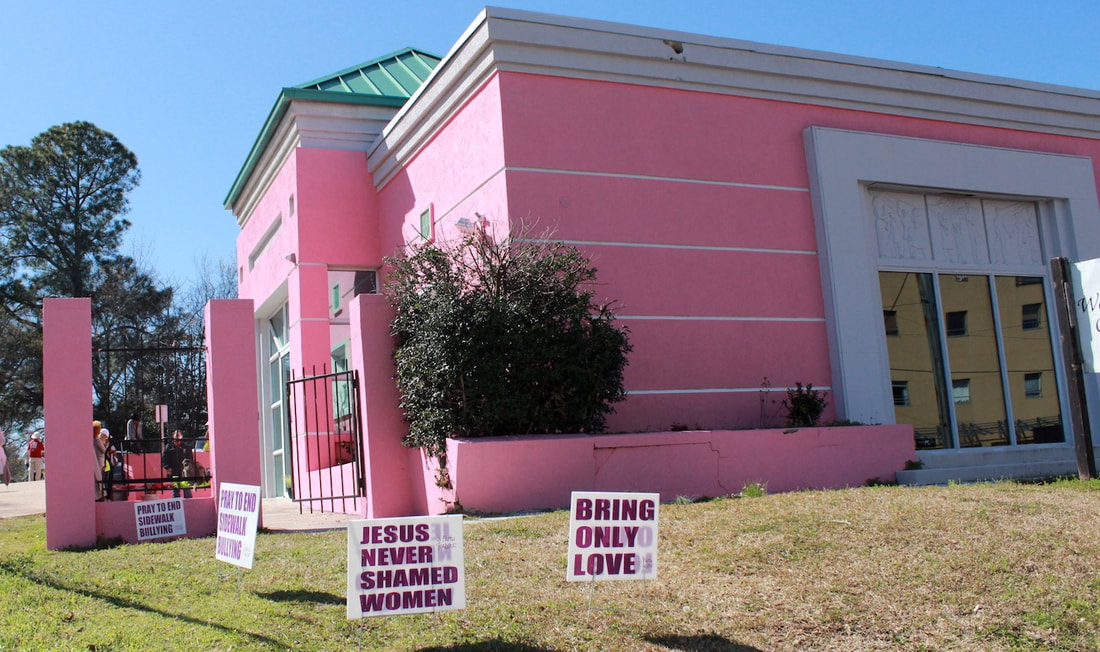
Last year, Mississippi Republicans, along with a handful of Democrats, passed a fetal heartbeat law that bans abortions after a fetus’ heartbeat becomes detectable, which typically happens around six weeks gestation. Abortion-rights groups say that, if the law had been allowed to take effect, it would’ve banned nearly all abortions, since many women do not even know they are pregnant that early.
Federal courts repeatedly rejected Mississippi lawmakers’ attempts to limit abortion rights over the last decade, citing the precedent set by Roe v. Wade, which many fear Barrett would vote to undo.
In its report, The Irish Rover also noted that Barrett mentioned the Hyde Amendment and public funding for abortions as another key legal issue.
Currently, the Hyde Amendment prohibits public funds from being used to pay for abortion. Some Democratic lawmakers have pushed to repeal the amendment, but many Republicans, including U.S. Sen. Cindy Hyde-Smith, continue to support it.
Rights Groups Oppose Nomination
A number of civil rights and women’s rights groups across the country have spoken out against the Barrett nomination, including Planned Parenthood.
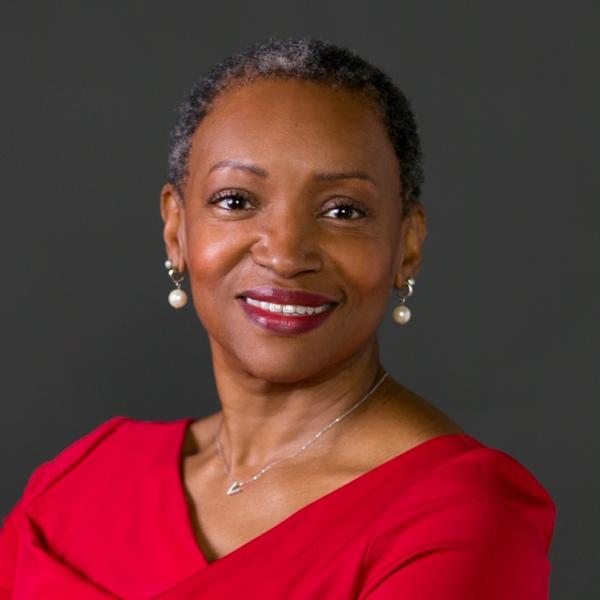
“To be very clear, the fact that President Trump has nominated anyone to fill Justice Ginsburg’s Supreme Court seat in this moment of national crisis is a direct threat to our health and rights and a disgrace to our democracy,” Planned Parenthood Action Fund President Alex McGill Jonhson said in a Sept. 26 statement.
“Donald Trump has made it clear that he would only appoint justices who would overturn Roe v Wade, and his administration is currently asking the Supreme Court to dismantle the Affordable Care Act—we can’t afford to see this nomination succeed. Nominating Amy Coney Barrett is a particular insult to the legacy of Justice Ginsburg.”
Vangela M. Wade, the president of the Mississippi Center for Justice, also condemned the nomination on the same day, saying in a statement that she was “deeply concerned that this nomination will move Mississippi—and the entire country—backwards, with literal life-and-death consequences for our most vulnerable.”
“The Supreme Court will soon hear arguments for a case that could dismantle the Affordable Care Act, which provides millions of Americans with health insurance. The timing couldn’t be more dangerous,” Wade said. “We are in the midst of a pandemic that has claimed the lives of more than 200,000 Americans, including 2,800 Mississippians. … And it’s not just healthcare. The Supreme Court could also roll back progress on reproductive justice, civil rights, immigration, criminal justice and so much more.”
Yesterday, Republicans in the U.S. Senate Judiciary Committee advanced Barrett’s nomination without a single Democratic vote; all minority party members boycotted the vote.
‘Look at This Through Prophetic Eyes’
After Barrett’s confirmation hearings, Engle made another appearance on Your Encounter Today, with host Alan DiDio teasing the appearance by telling viewers with a question: “Could we be at the place where we’re going to see the beginning of the end of abortion?”
Engle, rapidly rocking in his chair as he spoke, claimed that the timing of the death of Ginsburg, who was Jewish, was ordained by God.
“We have to look at this through prophetic eyes. I don’t think it’s an accident that she died on Rosh Hashanah,” Engle said, referring to the Hebrew name for the Jewish New Year. (Ginsburg was Jewish).
“I believe God injected a conversation (into the election) that shifted things from the coronavirus to the courts. He is pleading his case,” Engle said on Oct. 15.
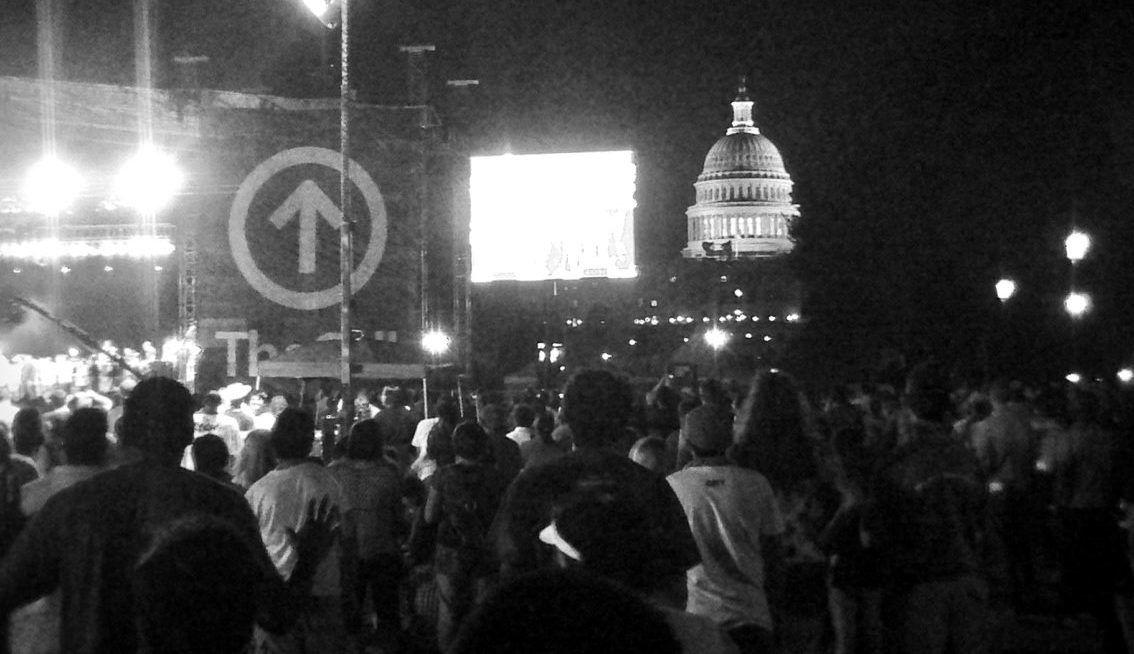
In August 2008, Engle and another organization he co-founded, The Call, held a mass rally on the National Mall in Washington, D.C., between the U.S. Capitol and the Washington Monument. There, he, along with around 60,000 evangelicals who traveled from all 50 states, prayed for the end of abortion—and for political leaders and federal justices who would ensure it. Three months later, the election of Barack Obama put a damper on those hopes.
On Sunday, with the U.S. Capitol as his backdrop, Lou Engle and other evangelical ministers will be leading thousands in prayer on the National Mall in D.C. once again at the “Let Us Worship DC” rally.
The next day, senators will gather mere yards away inside the nation’s capitol building to decide whether or not Amy Coney Barrett will receive a lifetime appointment to the highest court in the land.

